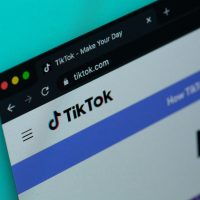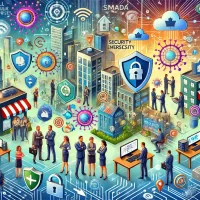Ever wonder what the state of cybersecurity in 2031 will look like? While 10 years may seem a long way into the future, the speed at which the industry is evolving is sure to make the next decade fly by. Predicting the future of cybersecurity isn’t about looking into the crystal ball merely for fun. By envisioning how the industry will change in 10 years, chief information officers and chief security officers can prepare for future challenges, so they don’t look back and wish they had acted in 2021.
As much as I enjoy making predictions, to give this story the best chance at getting things right, I interviewed three top cybersecurity experts for their perspectives on the future of cybersecurity.
Tyler Cohen Wood is an author, speaker and former senior intelligence officer with the Defense Intelligence Agency.
Roger Grimes is the defense evangelist for KnowBe4 and author of several books about hacking.
Troy Hunt is a cybersecurity speaker and trainer. Founder of the popular ‘Have I Been Pwned’ website, he has also testified before Congress about data breaches.
We talked about the future of the cloud, passwords, artificial intelligence (AI), data breaches and the skills gap. Take a look at their expert insight on what the industry needs to know about the future of cybersecurity in 2031.
Future of Cybersecurity: Cloud Computing
If there’s one aspect of IT that has experienced the most growth in the last 10 years, it’s undoubtedly the use of cloud. In 2031, cloud can only keep blazing forward. Or can it? Depends on who you ask.
“But, faster and easier and cheaper than ever means it’s easier to leave it all exposed,” he said. “We are seeing a lot of them go wrong now. I don’t see any of those factors reducing over the next decade. Mostly because there’s just such a high demand for them. Of course, we want cheap, ubiquitous cloud services; of course, we want to connect our washing machines to the internet, and that’s not going to change.”
Cohen Wood, however, predicts that the future of cloud computing might be short: the cloud might evaporate in 2031.
“I don’t think things will be in the cloud in 10 years; I think things will be back to on-prem,” she said. “There will be more peer-to-peer closed networks. People will figure out how to use blockchain.”
She envisions a peer-to-peer system. In it, each network carries different types of traffic for different types of communication. This is not unlike what the intelligence community uses.
“You’ll have an unsecure network, a secure network and then you’ll have a very secure network,” she added.
However, Cohen Wood said cloud won’t ever go away. “Things will swing [towards on-prem] for a while, but eventually it will swing back to cloud because that’s how it works. History has proven that time and time again.”
The State of Passwords
Ahh, the password. We’ve been its demise for decades. Yet today, we’re amassing them at unprecedented rates.
According to Grimes, the same attacks that allow threat actors to steal our passwords will still be the same in 10 years. So, it follows that the password we know and love (or hate) will be alive and well, too.
“There are 10 root causes of all hacking and malware exploitation, including social engineering, unpatched software, misconfiguration and eavesdropping,” he said. “The methods used 34 years ago (when I started in the industry) are the same methods used today. They haven’t invented a new way of hacking. So, I believe that passwords will be around at least another 10 years, or two decades, or forever. I’m going to go against the conventional wisdom.”
Grimes wrote his first article about the password’s demise thirty years ago, and while he still revisits that theory with restrained optimism, he acknowledges that passwords are just so useful. After all, that first article’s future of cybersecurity has become the present.
Hunt agrees that passwords are here to stay, but hopes that they will evolve. “I suspect that we will have more passwords in 10 years than we do now, but I also suspect that we will have more means of authenticating without them,” he said. “A good example of where we’re seeing that industry shift is when I look at my iPhone, I log on with my face; I don’t need to use a password. But I still have a password, and I have a PIN as a fallback position. I like the direction we’re starting to go with more clever ways of doing authentication.”
“Passwords get a bit of a bad rap,” he said. “But what passwords do extraordinarily well is usability. Everybody knows how to use a password.”
The Role of AI in the Future of Cybersecurity
How prominent the password and the cloud will be in 2031 might be up for debate, but the key role that AI will play in cybersecurity is something we can bank on.
All three experts told me that the use of AI will be even more critical than we think.
For Grimes, AI will be the catalyst in determining whether the industry can keep up with the threat actor community. “You’re going to end up having these good threat hunting bots going against bad bots that are changing on the fly depending on the conditions,” he said. “I think you’ll have computer security algorithms where people sit around and create better algorithms for their particular bots. It’s eventually going to be bot versus bot. You’ll still require human intervention because humans are always needed and are at least half the solution.”
Data Breaches and the Threat Landscape
Much like AI, data breaches are expected to be more prevalent in 2031 than they are in 2021 — which is both unfortunate and scary. As more data and devices appear online, the risk of a breach only grows.
For years, Hunt has been saying that there are numerous aligning factors that contribute to worsening data breaches that will continue as the future of cybersecurity approaches. “We simply have a lot more data, we’ve collected a lot more data because we’ve got more online assets and digital systems,” he said. “We’ve also got more people online; look at these emerging markets like India, for example. There’s still a massive amount of growth that’s going to happen there in terms of people coming online and then providing their data into digital systems.”
However, he predicts that the same attack types will happen, caused by the same mistakes made today and in the past as people bring more systems online and make them more accessible.
He suggested that the only way to prevent more infrastructure attacks is to pass a Geneva Convention-style digital act amongst nations prohibiting them from attacking infrastructure.
The Cybersecurity Skills Gap
Finally, we need to talk about the overwhelming number of unfilled cybersecurity positions. After all, if we can’t solve this critical piece of the cybersecurity puzzle, how can we keep up?
With such lucrative salaries in the field, you’d assume it would decrease the cybersecurity skills gap.
“Let me say I’m a little bit disappointed,” said Grimes. “Money has been good for a while. Within a few years, you can be making six figures, and some can make that much right out of school. The sky’s the limit. You can make your own software, you can make your own threat hunting bot. It’s frustrating we’ve still got this issue in 2021.”
Women in Cybersecurity
But what frustrates Grimes, even more, is how to solve the issue of getting interested in the field.
“It may be shocking to a lot of people, but the percentage of women in the IT security field today is lower than the percentage twenty years ago,” he said. “I applaud the people that figure out how to correct it because we need the female perspective. I raised three girls; they’re scary smart. Long-term planners often say that women play chess, and every guy I know plays checkers at best.”
Of course, a career is about much more than money. But the job security in this industry is equally solid. After all, today’s recruits are the people building the future of cybersecurity.
“There’s so much demand for it,” said Hunt. “But clearly, we’re leaving a lot to be desired in terms of how good a job we’re actually doing in securing our things … Now seems like a better time than ever to be involved in this industry.”
“I want to think positively or I wouldn’t be doing what I’m doing,” added Wood. “I have to believe that we can succeed in this. But I do know that the only way that we’re going to be able to do that is collaboratively.”
The future of cybersecurity depends on it.
Click here to view original web page at securityintelligence.com








